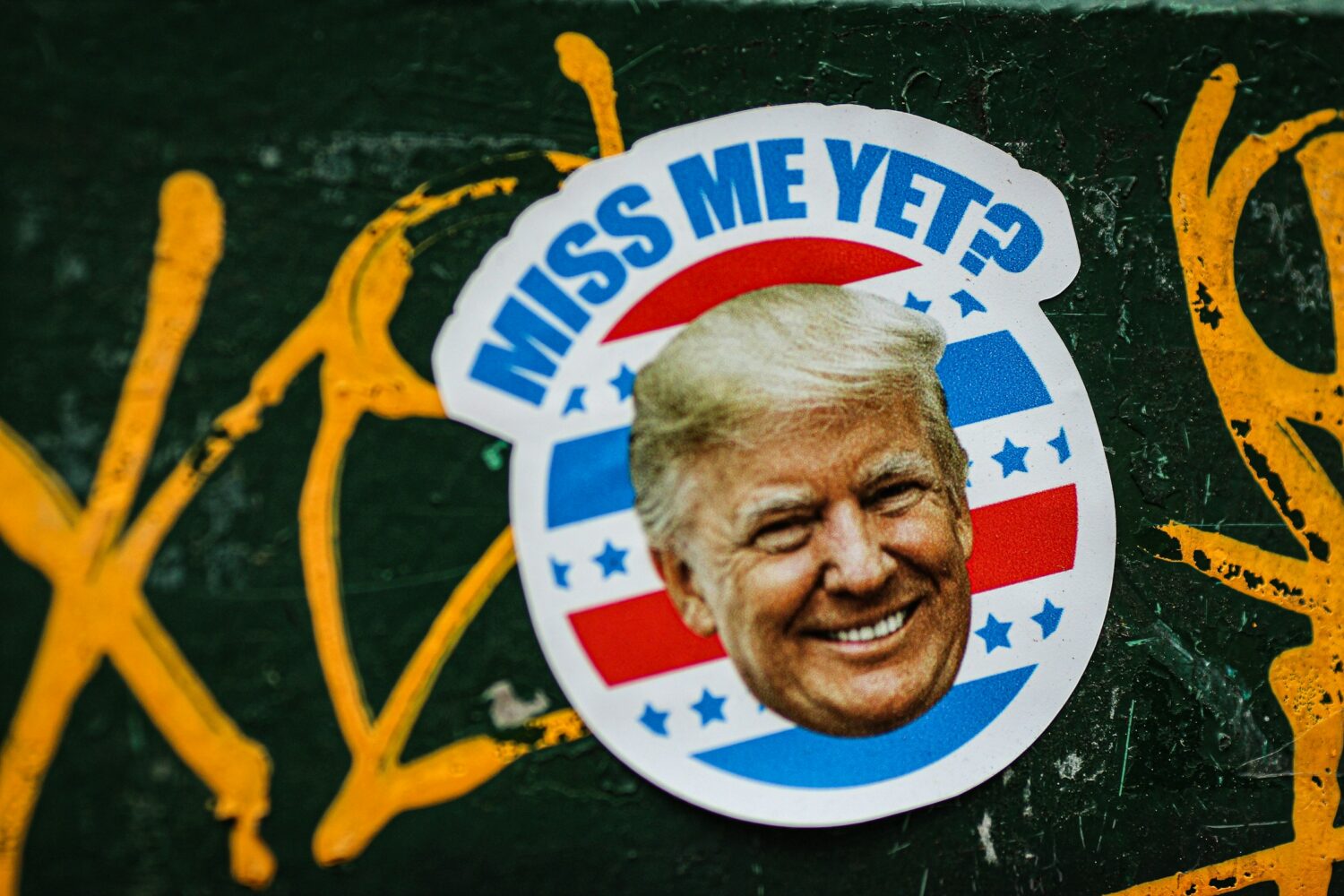How to Trump-proof Europe
 Foto: Unsplash/Jon Tyson
Foto: Unsplash/Jon Tyson
by Steven Hill
The US presidential election is fast approaching, with anxiety rising on both sides of the Atlantic. The political resurgence of the orange-haired, hockey-masked, Friday the 13th assailant who keeps rising again and again has everyone on the edge of their seat.
2024 already is looking to be a challenging year, from Ukraine to Gaza to North Korea. What’s at stake for Europe if the Real Donald Trump once again becomes president?
Pretty much everything. Russia, Ukraine, NATO, climate change, bilateral trade, the Middle East, China, Viktor Orban, digital security, the very stability of the European Union itself, all of these major policy dimensions will be dramatically impacted if Trump returns. Richard Haas, President of the Council on Foreign Relations, says even Russian interference in American democracy didn’t stop Trump “from being less confrontational with Putin than with European leaders.”
And this time around it will be the Donald 2.0 version. Rather than Trump having been chastened by the disaster of his first term, instead his recent speeches and social media messages show that he has become a Macbeth-like figure, consumed by sociopathic fantasies of revenge and domination of all who do not genuflect to his authority – whether individuals or nations. He has said that in a second term, his alliances and appointments would be prized above all for their loyalty to his rule and dictates.
How might this affect the EU’s security and economy?
Let me count the ways. In a replay of his previous “America First” policy, Trump has suggested that if he is reelected in November 2024, he will negotiate with Russian President Vladimir Putin to end the war in Ukraine “in 24 hours,” and demand that Europe reimburse the US for ammunition used in Ukraine and kill Ukraine’s bid for NATO admission. Author and foreign policy expert Anne Applebaum says Trump may well abandon NATO entirely, and “faith in collective defense could evaporate quickly…The prospect of America leaving NATO would force many European countries to keep their military resources at home; after all, they might soon face invasion as well.” Most recently, Trump outrageously claimed that he threatened NATO allies who he viewed as delinquent in paying NATO support with encouraging Russia to attack them.
Trump has also said he will withdraw from all climate agreements, and impose a ten percent tariff on all imports from Europe and other nations, even if it unleashes a global economic war. That’s no small threat, since the EU’s $16 trillion economy is heavily reliant on trade with the United States. The US is the EU’s biggest source of foreign direct investment and the $1.3 trillion in tradebetween America and the EU is the largest bilateral trade and investment relationship in the world, 40 percent greater than the EU’s trade with China.
In short, Trump is already threatening to overturn the transatlantic relationship and the global order even more than he did last time. Surrounded by sycophants and loyalists, there would be no “adults in the room” to rein in the tantruming childish Trump.
Key areas where the EU needs to prepare for the worst
So what can Europeans do to prepare – to “Trump-proof” Europe, as it has been called? It won’t be easy. Europe will have to be more united than ever. And it will have to fill the enormous American leadership void, learning to help Ukraine defend against Russia, promote human rights, keep open trade flowing, safeguard its own borders (including its digital borders), fight climate change and champion democracy. Here are some key areas where the EU needs to prepare for the worst, even as it hopes for the best:
Trade: Europe can shield itself from Trump’s protectionist policies by forging trade agreements with other nations and regional markets. It also should deepen its single market, particularly the financial, digital and service sectors. European Central Bank President Christine Lagarde says a more robust single market that better ensures the free movement of goods, services, people and capital across 27 member states would make it easier for smaller companies to raise funding and “facilitate and encourage innovation.”
China: Trump might well threaten sanctions on major telecom operators who use Chinese equipment, so the EU should anticipate that possibility by reducing any critical dependencies on Chinese telecommunications products. Failure to do that might result in fragmentation of the EU telecommunications market.
Energy: On the plus side, the share of EU pipeline gas imports from Russia declined from over 40 percent in 2021 to about 8 percent in 2023. But in the meantime, imports of LNG gas from the US tripled to over 50 percent of LNG gas imports. Might Trump pull a Putin on the EU? The EU must speed up its world-leading efforts at conservation and producing renewable energy.
Digital security: EU member states manufacture relatively little of their own cloud-computing systems and telecommunications infrastructure. They depend heavily on both American and Chinese products. Fortunately France, Italy, and Spain are leading by accessing cloud-computing services which are provided by firms headquartered in the EU.
Effective governance: The EU would be wise to address the institutional weaknesses that limit its ability to lead on the global stage. These vulnerabilities include requirements for unanimous vote approvals rather than majority votes. Francis Fukuyama, noted geopolitical strategist and Stanford University professor, laments how the EU’s consensus requirements “allow a single small country to block action by the whole.” Encouraged by Trump, Viktor Orban can be counted on to wield his frequent veto to undermine the EU unless the decision-making rules are changed.
Military and defense: This is a tricky one. A number of defense experts and strategists strongly recommend that Europeans “establish a level of military readiness it has not possessed since the Cold War” and become ”a strong actor, militarily.” But the EU does not have a unitary federal government with a highly visible president who is viewed as the legitimate chief of the armed forces and whose military authority is recognized by all member states. So this comes off as wishful thinking. Nevertheless, in the middle of Russia’s 2022 invasion of Ukraine, Europe’s combined military and financial aid to Ukraine now exceeds that of the United States.
European values: Perhaps the greatest threat that Trump represents to Europe is to its values: multilateralism, environmental responsiveness, the rule of law, and democracy itself. Through his actions and his rhetorical attacks, Trump tramples on these principles and sways public opinion. The EU needs to think hard about how, in order to withstand that pressure internally, it is necessary to defend the rule of law within its own borders.
In short, the EU member states must act as unified as possible. Is that possible?
Past crises have unified Europe
Europe has often needed a crisis to mobilize and to some extent unify its fractious member states. The European debt crisis in 2009-10 motivated the EU toward greater levels of federalism and to more fully integrate its banking systems. The immigration crisis in 2015-16 forced Europe to deal with its border issues and confront issues of member state solidarity. In the COVID-19 pandemic, member states empowered the EU Commission to buy vaccines, and for the first time the commission borrowed on a large scale to fund Europe’s economic recovery.

Steven Hill
In a counter-intuitive way, Trump 1.0 also had a galvanizing effect on Europe, spurring efforts toward greater self-reliance. Trump’s previous tariffs on EU steel and aluminum not only mobilized the EU to respond with tariffs on $3 billion worth of US goods, but to strengthen the euro by further integrating EU banks and financial systems. It led to the signing of trade agreements with new partners in Africa, Asia, and Latin America.
Trump’s threats over Europe’s defense spending levels nudged the EU to help reinvigorate NATO under the Biden administration, and led to institutional incentives for member states to spend more on defense. In response to Trump, the EU created the European Peace Facility that supports the armies of partner countries and EU member states with infrastructure, training and equipment. When Putin invaded Ukraine in 2022, the EPF was employed to provide military aid to Ukraine.
So EU unity is the best remedy to any Trump 2.0 reckless brinksmanship. But what could incentivize more unity?
Josef Braml from the Institute for Strategic, Political, Security and Economic Consultancy in Berlin recommends that the EU incur debt together to build more defense capability and European cohesion. „Europe must act as a united player. We have to think bigger,” he says, to “support individual states financially, and impose conditions on them in return. With money from shared European borrowing, we could also afford our own defense.“
In that light, Trump’s reelection becomes a test not only for transatlantic relations, but also for European cohesion. For the foreseeable future, Europeans will have to wonder which America will emerge next November – and what Europe will emerge in response.
Steven Hill ist Herausgeber und Chefautor von DemocracySOS und ist der Autor des Buches “Europe’s Promise: Why the European Way Is the Best Hope In an Insecure Age.” Sie können ihn unter @StevenHill1776 kontaktieren.
